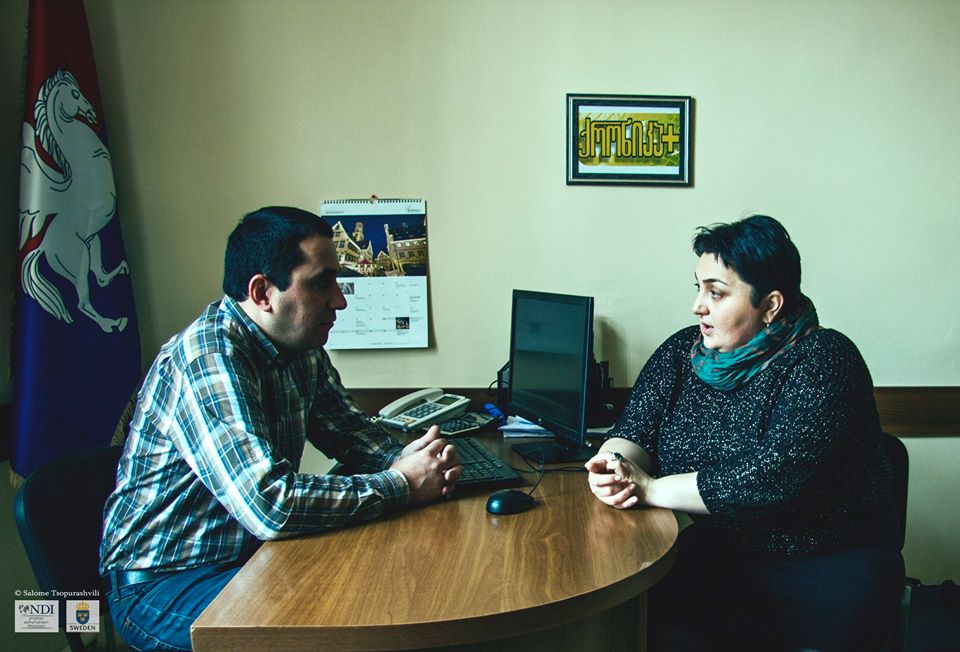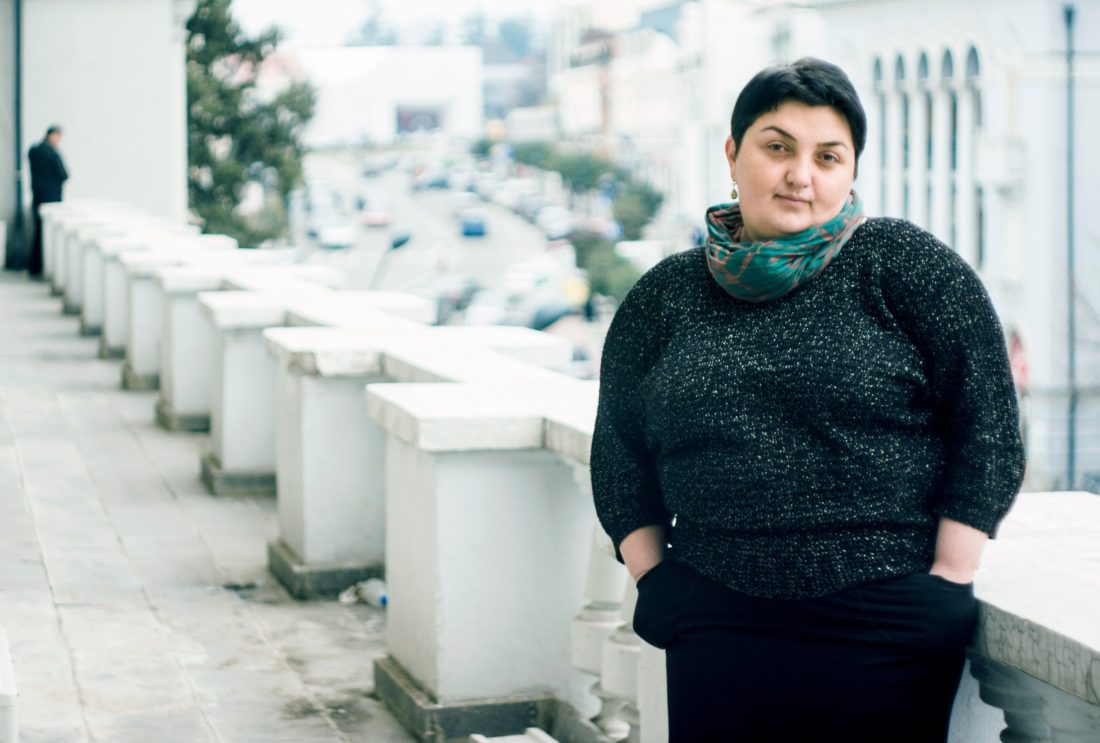Maka Mosiashvili, Telavi
„The worst period of my life was the time I spent in prison. I avoid remembering it as much as I can. I think I have talked about so much that I’ve finally exhausted it, but I still have to relive my horrible experience every time I tell the story of my life. When I got in jail, I left three minor children outside…
When fathers are sent to prison, usually, mothers assume the responsibility to take their children to prison to visit their father, to make sure they do not forget him, and keep in touch with him all the time. However, this does not happen so when women are detained. Four months after I was taken to jail, my husband explained to me that he worked in a law enforcement agency and my situation was unacceptable for his career. So, he divorced me and left me alone in the face of difficulties. My children stayed with my mother and they were actually brought up by her. After three years in prison, I sought alimony through court. Considering his salary, I felt I had all the right to claim GEL 245 per child based on subsistence minimum defined by the market basket. My son, who was very young then, asked me over the phone not to impose a large alimony on his “poor daddy”. I asked him, why he thought so, and he answered: “You are tough, mom, but dad is not”. When I met my former husband in court, I told him: “Your son had mercy on you today, I will claim only 100 laris per child instead of 245 laris. Since then, he has paid GEL 300 per month and made telephone calls just to keep himself informed about children. However, children need so much more from their father – going to school together, having conversation about different topics, bonding with him. Instead, he just ran away from difficulties and left us alone.
I think it is not fair that rights of single women are not protected. When a woman is bringing up her children alone, she has a double responsibility and she actually has to fight tooth and nail for her own and children’s survival. There are periods in our life when we are not even capable of working because of an onslaught of depression. All we’ve got is the “single mother” status assigned by Parliament. This is just a formal status. Single moms are called those whose children have the mother’s surname indicated in their birth certificate. I do not think this is the right way to identify the status of a single mother. I believe all the women who raise their children independently are single mothers.
Six months after I was released from jail, I went back to journalism. Soon, I realized that I was in a completely different reality. The city that has the budget of GEL 8-9 million does not have a social program, which would protect me and people like me. Therefore, I made up my mind to start the so-called “monitoring” of the Telavi self-government. I scrutinized the code of the self-government and regulations of the Sakrebulo (City Assembly). I also read resolutions and the normative acts to gain insight into the style of work of the self-government. Women have traditionally played an active role in the Telavi history. But currently we have a totally patriarchal environment: we have a male mayor, who has three male deputies and 15 male members of the City Assembly, who never realize the needs of women living in their city.
 In provinces, women do not take risks as easily, so I decided that I was the one who would do that and I bet the farm. As a free citizen, I attend Assembly and Satatbiro (Council) meetings and control where and how our city budget is spent. Very often, the Telavi budget is not spent for the right purpose. If there are some visits abroad, the male representatives of the self-government go there collectively and spend the budget inappropriately. Moreover, funds are spent during city festivals, which are followed by the so called ‘second section’ where male members of the self-government spend some more GEL 60,000-80,000 from the budget to cure their hangover…
In provinces, women do not take risks as easily, so I decided that I was the one who would do that and I bet the farm. As a free citizen, I attend Assembly and Satatbiro (Council) meetings and control where and how our city budget is spent. Very often, the Telavi budget is not spent for the right purpose. If there are some visits abroad, the male representatives of the self-government go there collectively and spend the budget inappropriately. Moreover, funds are spent during city festivals, which are followed by the so called ‘second section’ where male members of the self-government spend some more GEL 60,000-80,000 from the budget to cure their hangover…
Meanwhile, women in Telavi face unemployment problems. Women cannot work even as shop assistants unless they are provided references by a man. Moreover, Kakheti has the highest rate of violence against women. The infrastructure also needs to be improved. Women suffer most from the lack of running water. As they do household chores, women in those villages where they do not have running water have to travel kilometers to bring some water home. Women like me and I would like to talk to female members of the City Assembly, i.e. to the people who will be able to understand our problems better. Men cannot understand women’s problems. If a woman dares come to the City Assembly crying and loudly demanding her rights, the male members, who watch the scene behind the door, start giggling: “She must be on her period, that’s why she is yelling”.
When I started monitoring the city self-government they reproached and mocked me, then they were mad and I realized finally that I had made a right decision. As a result of my application, the Telavi Social Committee provided some subsidies for the payment of single mothers’ utility bills. Thanks to my efforts, Telavi residents have become hopeful that their voices will be heard by the City Assembly. Any city resident may come to me anytime. I help them deal with their problems; naturally, I do whatever I can. I teach the City Assembly members, for example, how to finance a tuition fee for an orphan student who has to work during the day and study in the evening.
When women speak up it is usually men who are afraid the most because women do not agree to collude that easily, do not put up with problems and can handle them better thanks to their multitasking experience.
Today everyone knows in the city that in summer I will end my career as a journalist and take part in the local elections in 2017. I will be the woman, who will change the life of females in this city, who will make sure that funds are allocated from the city budget for grant projects focused on supporting women entrepreneurs to help them start an independent life. The funds allocated for Telavi shall be used in a way that provides us more benefits.“

